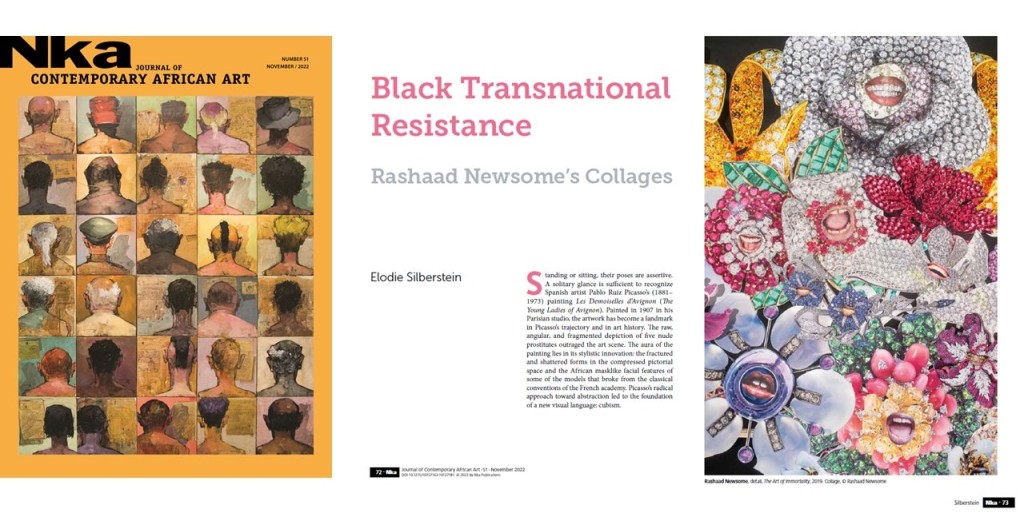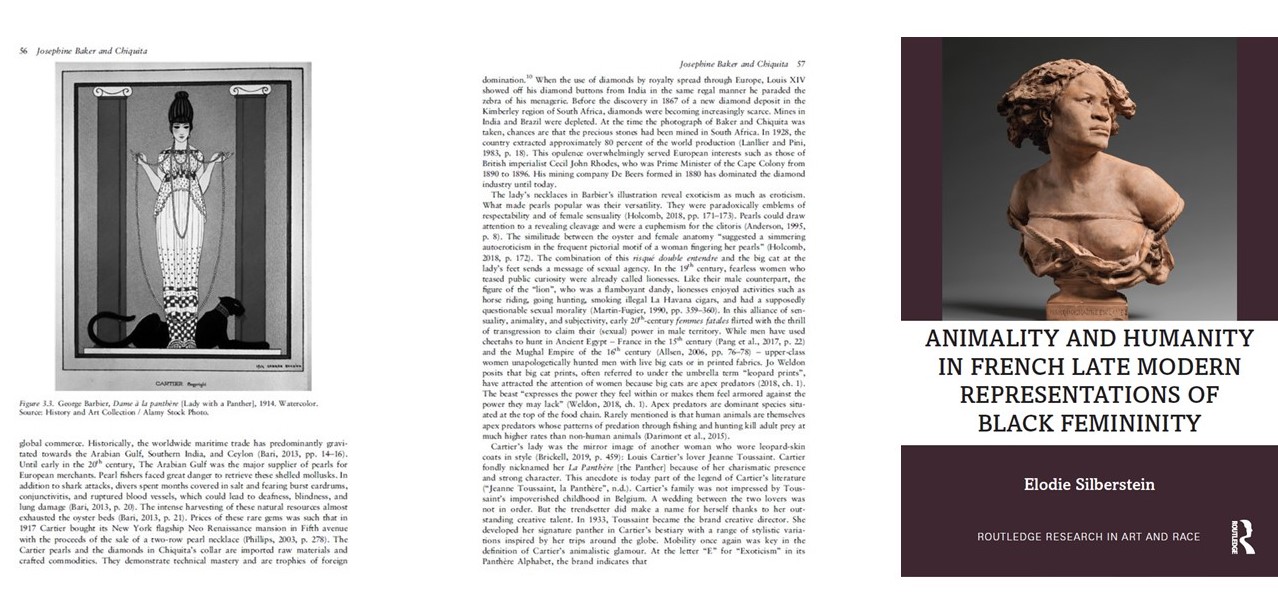Elodie Silberstein (she/her) is an artist and an Adjunct Associate Professor at Pace University (New York City, United States). She holds a Doctor of Philosophy from the School of Media, Film and Journalism at Monash University (Naarm, Australia), and a Master of Fine Arts from the University Paul-Valery (Montpellier, France). Her academic and creative research focuses on the representations of femininity – from fine art to mass media – as a prism through which to map issues of social, racial, and environmental inequalities.
Elodie is currently investigating the image of La Parisienne, and the way this icon of seduction and national grandeur has eclipsed both rural and racialised ideals of attractivity in the collective imagination – two aspects of Elodie’s French identity. Her first book examined the evolution of the portrayal of black femininity in French visual culture. Drawing on a broad spectrum of archives extending back to the late 18th century – paintings, fashion plates, prints, photographs, and films – Animality and Humanity in French Late Modern Representations of Black Femininity (Routledge) traces the intricate ways imperialism and global capitalism have paired black women with the realm of nature to justify the exploitation both of people and of ecosystems. Elodie is currently writing a second book about forgotten black Parisian women at the Belle Époque (1890-1914).
Elodie has also chaired panel discussions. She has written for the media on subjects ranging from the commodification of young femininity in the 19th century European postcard industry (The Conversation) to the politics of black femininity in Rashaad Newsome’s artworks (NKA Journal of Contemporary African Art) and the body evolution of Barbie fashion doll (Ramona Magazine). She completed a four-year membership of the Darebin Women’s Advisory Committee (DWAC) which provides guidance to the City of Darebin (Naarm) on gender policies. Elodie’s teaching philosophy prioritizes a rigorous scholarly learning experience with creativity at its core. More on her pedagogy can be found in the article Zine-making pedagogy during a pandemic: reflections and implications (International Feminist Journal of Politics).


Leave a comment